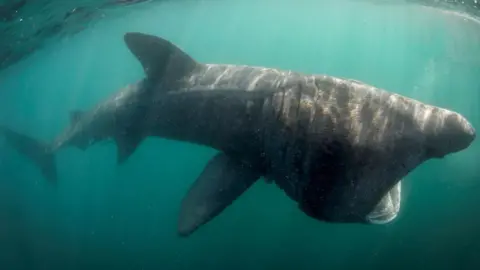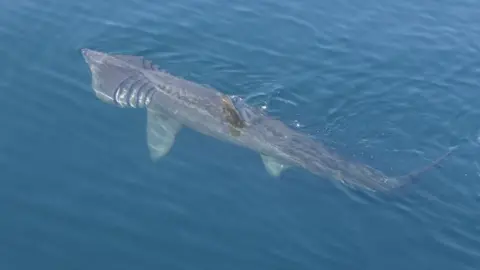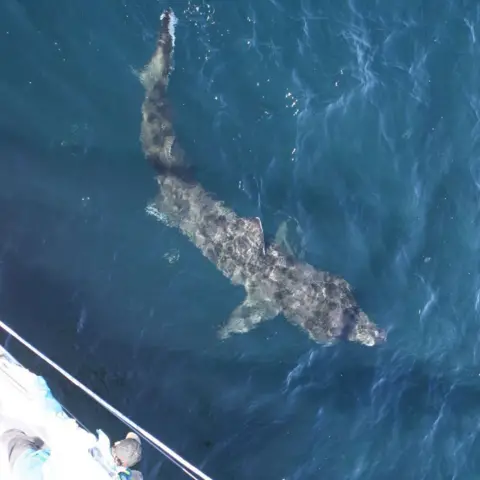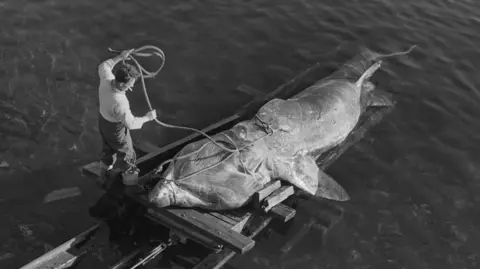'Worrying' fall in Scottish basking shark sightings
 Getty Images
Getty ImagesScottish sightings of basking sharks have fallen to their lowest level in 20 years, say conservationists.
The sharks - the world's second largest species of fish after whale sharks - gather off Scotland's west coast from May to October to breed and feed on plankton.
Hebridean Whale and Dolphin Trust (HWDT), which has been carrying out surveys for sharks and other large marine animals for two decades, recorded seven last year.
HWDT's best year for sightings was 2010 when 162 were spotted, and it has recommended further analysis to understand why numbers were so low in 2023.
 HWDT
HWDTThe survey covers the west coast, from Cape Wrath in the north to the Inner Hebrides in the south.
The results are published by Scotland's nature agency, NatureScot.
Most of 2023's basking shark sightings were within the Sea of the Hebrides Nature Conservation Marine Protected Area.
A similar number of basking sharks were recorded by Mull-based HWDT in 2022.
The charity said further analysis was needed to understand why so few were counted.
Rona Sinclair, of NatureScot, said: "The decrease in basking shark sightings is worrying, and there could be many reasons for this, likely linked to availability of their food, zooplankton.
"However, they may also still be there at depth and just not visible."
She added: "Continued collaboration with researchers is vital, helping us to know how these giant beasts – the world’s second largest fish – are faring, so we can respond appropriately."
 HWDT
HWDT Getty Images
Getty ImagesBasking sharks, an endangered species, can grow to more than 10m (33ft) long.
They have no teeth and feed on microscopic plankton with their huge, wide-open mouths.
They migrate between Scotland and waters around Madeira and the Canary Islands off west Africa.
Until 1994 they were hunted off Scotland with harpoons for the oil in their livers.
The oil contains squalene, a property that helped in the manufacture of industrial lubricants and, at the other end of the scale, cosmetics, perfume and artificial silk.
While basking shark sightings fell last year, HWDT recorded its highest sighting rates of minke whales.
The trust said when sightings of basking sharks were high, they were low for minke whales and vice versa.
It said the reasons were as yet unexplained, and an investigation was needed into potential causes such as climate change.
Dr Lauren Hartny-Mills, of HWDT, said: "In the face of the nature and climate emergencies, gaining new insights and understanding into what is happening in Scotland’s seas is vital, so we can better protect these remarkable animals and this world-class region of marine biodiversity."
